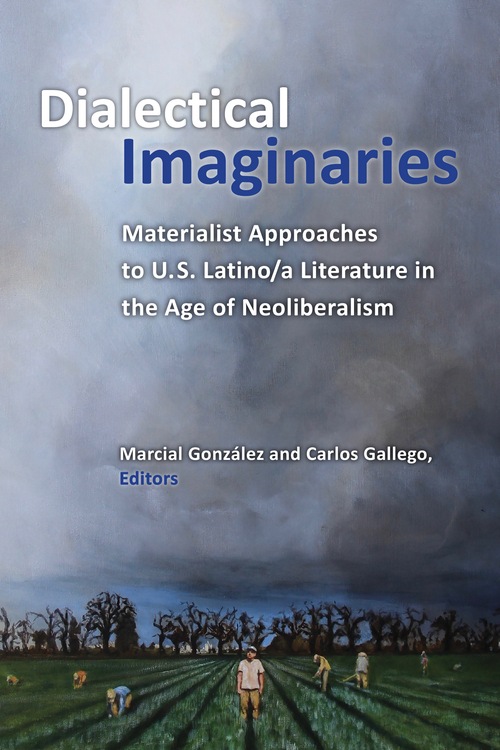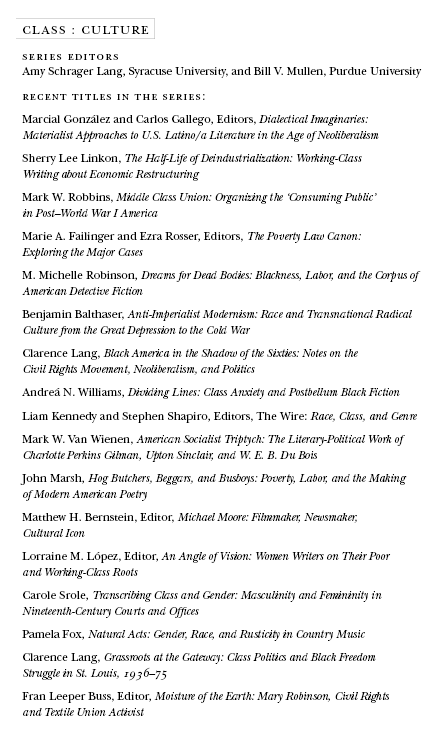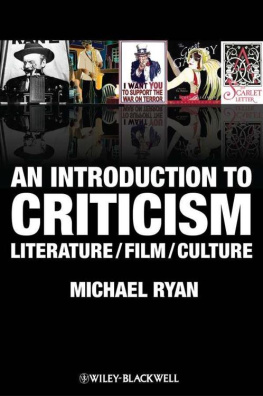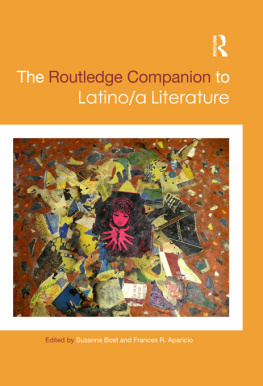
Dialectical Imaginaries

Dialectical Imaginaries
Materialist Approaches to U.S. Latino/a Literature in the Age of Neoliberalism
Marcial Gonzlez and Carlos Gallego, Editors
University of Michigan Press
Ann Arbor
Copyright 2018 by Marcial Gonzlez and Carlos Gallego
All rights reserved
This book may not be reproduced, in whole or in part, including illustrations, in any form (beyond that copying permitted by Sections 107 and 108 of the U.S. Copyright Law and except by reviewers for the public press), without written permission from the publisher.
Published in the United States of America by the
University of Michigan Press
Manufactured in the United States of America
A CIP catalog record for this book is available from the British Library.
Library of Congress Cataloging-in-Publication Data
Names: Gonzalez, Marcial, 1953- editor. | Gallego, Carlos, 1971editor.
Title: Dialectical imaginaries : materialist approaches to U.S. Latino/a literature in the age of neoliberalism / Marcial Gonzalez and Carlos Gallego, editors.
Other titles: Materialist approaches to U.S. Latino/a literature in the age of neoliberalism
Description: Ann Arbor : University of Michigan Press, [2018] | Includes bibliographical references and index. |
Identifiers: LCCN 2018021269 (print) | LCCN 2018028474 (ebook) | ISBN 9780472124114 (E-book) | ISBN 9780472073955 (hardcover : alk. paper) | ISBN 9780472053957 (pbk. : alk. paper)
Subjects: LCSH: American literatureHispanic American authorsHistory and criticism. | Capitalism and literatureUnited StatesHistory. | Marxist criticismUnited States. | Politics and literatureUnited States. | Social conflict in literature. | Hispanic Americans in literature. | Literature and societyUnited States.
Classification: LCC PS153.H56 (ebook) | LCC PS153.H56 D52 2018 (print) | DDC 810.9/868073dc23
LC record available at https://lccn.loc.gov/2018021269
For all those engaged in the fight against social injustice and inequalityand for those who dare to imagine an alternative.
Contents
Carlos Gallego and Marcial Gonzlez
Rosaura Snchez and Beatrice Pita
Dennis Lpez
Michael Dowdy
Marcelle Maese
R. Andrs Guzmn
Carlos Gallego
Elena Machado Sez
Mathias Nilges
Abraham Acosta
Edn Torres
Marcial Gonzlez
First and foremost, we want to thank the individual authors who contributed essays to Dialectical Imaginaries for their patience and persistence in sticking to this project until its completion. Thanks also to Ben V. Olgun for taking part in our initial discussions about the collection and for helping us to imagine its possibility. We acknowledge our gratitude to LeAnn Fields, Mary Hashman, and Sarah Dougherty, the editors at the University of Michigan Press who worked with us on making this collection happen, the anonymous readers for their tremendously helpful feedback, and the series editors Bill V. Mullen and Amy Schrager Lang. We are also grateful to Maceo Montoya for his permission to use his artwork La Inmensidad on the cover of our book and for his commitment to working-class Latino/a art. The University of California, Berkeley and St. Olaf College provided much needed assistance for this project. Finally, we extend our most sincere gratitude to Rebecca S. Richards and Valentina Holquin Gonzlez for their valuable input and endless moral support.
Reading U.S. Latino/a Literature through Capitalismand Vice Versa
Carlos Gallego and Marcial Gonzlez
Class, as a legitimate category for literary interpretation, was slowly but effectively marginalized and delegitimated in the United States during the 1980s, especially after the fall of the Soviet Union. The neoliberal ideological euphoria that followed celebrated the global triumph of parliamentary capitalism and the end of history,essays that interpret Latino/a literature by employing Marxist theory, critiques of capitalism, or materialist analyses of socioeconomic injustices, for we find this literary tradition to be unique in how it represents and addresses several of the aforementioned issues.
In this regard, we are indebted to those scholars who have effectively employed Marxist theory, to one degree or another, as a methodology in their approach to Chicano/a and Latino/ahave a well-established history of engaging with Marxist ideas and practices at varying levels of political and theoretical commitment. In this regard, Dialectical Imaginaries is not exactly aimed at breaking new ground, but rather at building upon and extending earlier efforts to bridge the divide between U.S. Latino/a literary studies and materialist methods of interpretation, particularly Marxism. By focusing specifically on materialist methodologies, we hope this collection will serve as an impetus to foster dialogue about how to continue developing this important interdisciplinary area of study.
The essays collected in Dialectical Imaginaries investigate the manner in which U.S. Latino/a literature accentuates (or has been influenced by) the class conflicts experienced by Latino/as during the neoliberal period. On the one hand, neoliberalism allows for the seamless flow of capital across national borders; on the other hand, it supports an intolerant political rhetoric of homeland security, deportations, and xenophobia that is currently at the forefront of European and American politics. Neoliberalism, while not the principal focus of this collection, is nonetheless an important and often used concept in several of the essays, thus a working definition will prove useful. From the perspective of Marxist economics, neoliberalism refers to a stage of capitalism, roughly from the mid-1970s to the present, during which capitalism moved drastically away from the welfare state associated with Keynesian economics and toward a deregulated or laissez-faire economy that emphasized free trade, tax cuts for corporations and the wealthy, cuts to social programs, the privatization of services, attacks on workers rights, relaxed environmental protections, and a sharp increase in the mass incarceration of working-class men and women, especially Blacks and Latinos. The implementation of these neoliberal policies has enabled global capitalists to accumulate enormous wealth and power on the backs of workers and other disempowered people.
Neoliberalism also refers to the socioeconomic paradigm that prioritizes market logic as the guiding principle behind any and all sociopolitical practices, an idea that emerged after World War II and increasingly gained traction during the second half of the twentieth century. As David Harvey succinctly explains:
Neoliberalism is in the first instance a theory of political economic practices that proposes that human well-being can best be advanced by liberating individual entrepreneurial freedoms and skills within an institutional
As a philosophy, neoliberalism is known for reducing all social issues to economic problems that can be solved by market reasoning. Or, as Silvia Federici argues, The neoliberal attempt to subordinate every form of life and knowledge to the logic of the market has heightened our awareness of the danger of living in a world in which we no longer have access to... our fellow human beings except through the cash-nexus. One example of such neoliberalism is found in the corporatization of U.S. politics, which fortified itself as a new paradigm with the massive market deregulations of the 1980s, setting up the institutional framework Harvey describes. By the 1990s, neoliberalism was the dominant geopolitical paradigm, most noticeable in international trade agreements like the North American Free Trade Agreement (NAFTA) and the emergence of new economic-political entities like the European Union and the transformation of China into a capitalist superpower.
Next page





